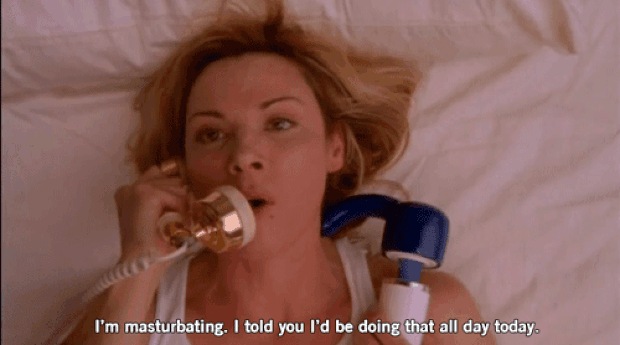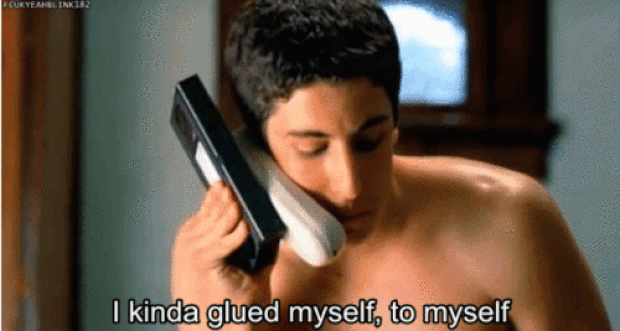5 Reasons I'm Teaching My Teenagers About Masturbation
We all know it’s happening.
 Pixabay
Pixabay I know what it sounds like. When you raise the question about teaching young people about masturbation, it makes you uncomfortable, right?
Personally, I just flashback to my youth and how I would’ve felt if my mother had come into my bedroom and tried to have a frank conversation about masturbating.
I probably would’ve died. Or at least that’s how I would’ve felt.
But, when you put our natural “OMG, Mom” embarrassment aside and approach the question openly, it actually does have some merit.
Why don’t we teach kids about masturbation?

Actress Shailene Woodley caught some heat late last year for some comments she made about masturbation and sex education. In an interview with Net-a-Porter, she said:
“As a young woman you don’t learn how to pleasure yourself, you don’t learn what an orgasm should be, you don’t learn that you should have feelings of satisfaction. I’ve always had a dream of making a book called There’s No Right Way to Masturbate. If masturbation were taught in school, I wonder how [many] fewer people would get herpes aged 16, or pregnant at 14?”
I think she has a great point, even if some media agencies ran wild with her suggestions. For example, despite what some clickbait sites would have you believe, I don’t think Woodley was calling for elementary school teachers to start hands-on tutorials for showing second graders how to rub one out in class.
It’s easy to object to giving kids “how to” masturbation lessons in school, but why shouldn’t masturbation be addressed and discussed in normal sexual education classes?
It is possibly THE most common form of sex in the world — self-love — so it certainly seems to merit discussion.
And it's one I'm having with my own teenagers, at home.
Because, frankly, think of all the benefits that could come from taking masturbation out of the shadows and talking about it openly and honestly with sex-ed students.
Here are 5 ways that open discussions about masturbation could truly change how young people think about sex:
1. Masturbation advocates for self-pleasure.

Too often, when young people start having sex, it’s not a particularly pleasurable experience. It can be uncomfortable, it can hurt. But they get talked into continuing with uncomfortable acts because they’ve been told for all of their lives that sex is the best thing EVER.
However, if a young person knows about masturbation, they’ll have a better idea of how things should or should not feel. They won’t keep having bad sex with another person simply because they’ve heard it’s amazing. They’ll know “I could go home and do this so much better myself.” Masturbation gives them another option.
2. Masturbation teaches young women (and men) about the importance of the clitoris.

Think about how shocked high school boys would be if, in a sex ed lecture about female masturbation, they learned where the clitoris really is and what it does. How far away it actually is from where they thought it was? How important it is to the female orgasm and how unlikely it is that they’ll make their girlfriend orgasm from their normal backseat missionary humping?
Not only would that discussion empower young women, but it would also teach men that, if they actually want to pleasure their partners, it involves SO much more than just putting a penis into a vagina.
3. Masturbation helps reduce overpowering sexual urges.

Remember that scene from There’s Something About Mary? When Chris Elliot chides Ben Stiller for not masturbating before a big date? (“You’re going out there with a loaded gun!”)
There’s a LOT of truth in that scene, and that advice is actually kind of great for hormone-obsessed teenagers. Kids that age have so many strong, hormonal urges running through their bodies and they can lead to some really bad decision-making.
But if students learned the mechanics behind why masturbating as a safe, easy way to bring those urges into check, it might reduce the constant pressure to hook-up and help avoid a lot of unfortunate sexual encounters.
4. Masturbation education helps remove the stigma from the act.

Teenagers all grow up with different opinions about masturbation, largely due to how they were raised. Masturbation was a very private, shameful thing in my household — something that was never talked about. And, while my shame was a fairly self-inflicted thing, there are some students who learn that masturbating is a flat-out sin, an affront to God even.
While religious beliefs should be respected (within reason), one can make the case that masturbation is the lesser of many evils. Why stigmatize something so private and safe when the alternative is often letting emotions and urges build up until the young person has actual sex? Sex that can lead to pregnancy, STDs, and many other negative outcomes.
Parents don’t have to like masturbation, but proper education might help their kids realize that it’s the safest of all sexual options and might make an important difference in their life someday.
5. Masturbation education can prevent embarrassing/serious accidents.

Masturbation is, largely, a self-taught art. Most tweens and teens don’t find a “how to” book or video in the woods or have a mentor figure show them how. They just… make it up as they go.
The majority of the time, that’s totally fine. But there are masturbation horror stories of kids who tried to experiment with masturbating and paid a price. The stories can range from boys inserting objects into their urethra, to girls pleasuring themselves with food items, to early forays into auto-erotic asphyxiation.
If masturbation was part of the sex education curriculum, teachers could address these worst case scenarios upfront and warn their students about their dangers. But, since most sex ed programs don’t cover the topic, kids go uneducated and masturbation remains an unspoken (and sometimes scary) thing.
YourTango may earn an affiliate commission if you buy something through links featured in this article.

